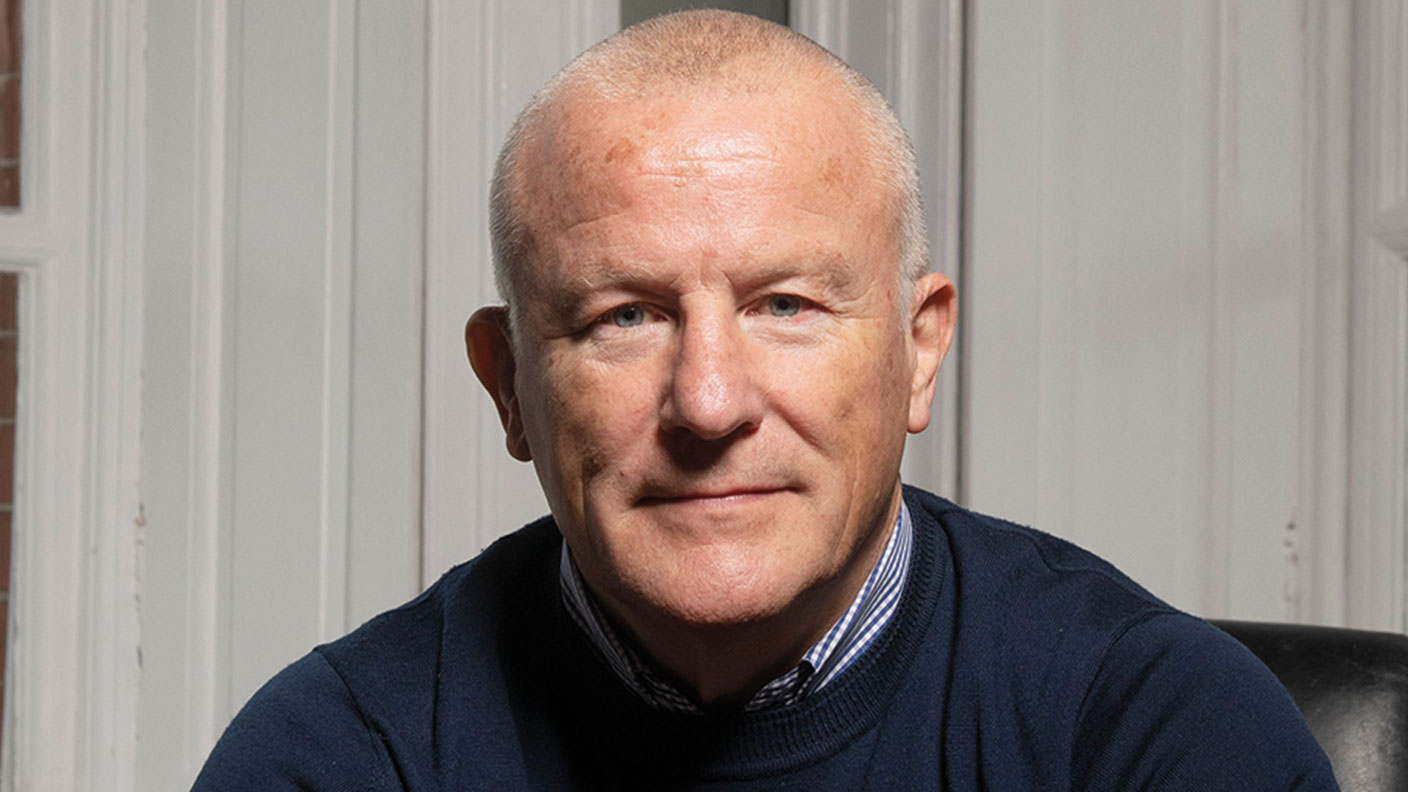Get the latest financial news, insights and expert analysis from our award-winning MoneyWeek team, to help you understand what really matters when it comes to your finances.
You are now subscribed
Your newsletter sign-up was successful
Want to add more newsletters?

Twice daily
MoneyWeek
Get the latest financial news, insights and expert analysis from our award-winning MoneyWeek team, to help you understand what really matters when it comes to your finances.

Four times a week
Look After My Bills
Sign up to our free money-saving newsletter, filled with the latest news and expert advice to help you find the best tips and deals for managing your bills. Start saving today!

We were among the first to warn of the contagion from Neil Woodford's funds for those he left behind at Invesco when he left in 2013. Until then, he had worked closely with Mark Barnett, the manager of Perpetual Income & Growth (PLI), Keystone (KIT) and various other funds.
We concluded in June that "Barnett sticks devotedly to companies that have tried but failed to regenerate themselves. Don't be tempted by the discounts and the yields until there is some evidence that lessons have been learned."
Barnett had an opportunity to break free from Woodford's shadow in 2013, but failed to do so, continuing to focus both his portfolios and the ones he took over on the stocks that had served them well, notably tobacco, the oil majors and insurance. Barnett did not follow Woodford's plunge into private equity, perhaps because Invesco stopped him from doing so, but his portfolios held on to a ragbag of holdings in eclectic investment funds, high-yield property trusts and speculative life-sciences companies.
MoneyWeek
Subscribe to MoneyWeek today and get your first six magazine issues absolutely FREE

Sign up to Money Morning
Don't miss the latest investment and personal finances news, market analysis, plus money-saving tips with our free twice-daily newsletter
Don't miss the latest investment and personal finances news, market analysis, plus money-saving tips with our free twice-daily newsletter
Working together?
What has disturbed investors is the strong circumstantial evidence that Barnett and Woodford continued to work together, investing in the same stocks. Both were hurt by their significant holdings in Capita, Provident Financial and Burford. It is just about possible to argue that they invested independently, aware of the other's holding but uninfluenced by the other except by the way of thinking they had shared at Invesco.
But these and the common holdings in "cheap" mega caps aren't the end of the story. Both invested heavily in private-equity group Oakley Capital and its listed subsidiary Time Out; Woodford sold his holding earlier this year though both companies appear to be doing well but Invesco continues to have holdings. No wonder many see them as Tweedledum and Tweedledee.
It's no surprise that Morningstar reports withdrawals of £451m from Barnett's Invesco High Income fund in the third quarter and £197m from his Income fund. Both funds have performed poorly in the last year, respectively 11% and 9% behind the sector average, but it is notable that contagion has spread to much better-performing funds in the sector. JO Hambro and Artemis income funds suffered withdrawals of £343m and £243m. Withdrawals from the Invesco funds in particular have prompted Morningstar to downgrade the Invesco funds to a "neutral" rating on account of their over-30% exposure to small-cap and micro-cap companies.
This is not because the outlook for smaller companies is poor; after a torrid time earlier in the year, they are performing well and look undervalued. But fund redemptions could snowball and leave the Invesco funds overexposed to illiquid stocks.
The wrong small caps
What Morningstar doesn't point out is that Invesco appears to be exposed to the wrong smaller companies, such as IP Group, e-Therapeutics, and 4d Pharma all also owned by Woodford. Strong performance by smaller companies in general won't necessarily help Barnett.
Naturally, both he and Invesco protest that their funds are well diversified and predominantly invested in liquid stocks. They believe that the tide has turned in favour of "value" stocks, notably depressed economically sensitive domestic companies, and they may be right. But if so, why invest in a sector laggard rather than a competitor on the front foot?
If value stocks are set for a recovery, then the JO Hambro and Artemis Income funds or Temple Bar (LSE: TMPL), Murray Income (LSE: MUT) of which MoneyWeek editor-in-chief Merryn Somerset Webb is a non-executive director and Troy Income & Growth (LSE: TIGT) investment trusts are likely to produce better performance. They can still afford to take risks and this is the key to good returns.
The Invesco funds and trusts may be full of cheap stocks, but these have a habit of staying cheap. The skill of the value manager lies in distinguishing between "value" and "cheap" stocks. The shares of most firms that went bust looked very cheap before they were suspended. The great turnaround opportunities looked beyond redemption when they hit their lows.
Get the latest financial news, insights and expert analysis from our award-winning MoneyWeek team, to help you understand what really matters when it comes to your finances.

Max has an Economics degree from the University of Cambridge and is a chartered accountant. He worked at Investec Asset Management for 12 years, managing multi-asset funds investing in internally and externally managed funds, including investment trusts. This included a fund of investment trusts which grew to £120m+. Max has managed ten investment trusts (winning many awards) and sat on the boards of three trusts – two directorships are still active.
After 39 years in financial services, including 30 as a professional fund manager, Max took semi-retirement in 2017. Max has been a MoneyWeek columnist since 2016 writing about investment funds and more generally on markets online, plus occasional opinion pieces. He also writes for the Investment Trust Handbook each year and has contributed to The Daily Telegraph and other publications. See here for details of current investments held by Max.
-
 Should you buy an active ETF?
Should you buy an active ETF?ETFs are often mischaracterised as passive products, but they can be a convenient way to add active management to your portfolio
-
 Power up your pension before 5 April – easy ways to save before the tax year end
Power up your pension before 5 April – easy ways to save before the tax year endWith the end of the tax year looming, pension savers currently have a window to review and maximise what’s going into their retirement funds – we look at how
-
 Neil Woodford’s back – but has he really learned anything?
Neil Woodford’s back – but has he really learned anything?Opinion Disgraced fund manager Neil Woodford is planning a comeback. But he doesn’t seem to have learned much from his many mistakes. So why would anyone invest with him now?
-
 Neil Woodford’s back – but sometimes sorry isn’t enough
Neil Woodford’s back – but sometimes sorry isn’t enoughAdvice Neil Woodford’s funds blew up in 2019. Now he is on the comeback trail. But his apologies are unconvincing.
-
 Woodford investor? Your first payment is coming soon
Woodford investor? Your first payment is coming soonNews Private investors left stranded by the collapse of the Woodford Equity Income fund will soon be getting at least some of their money back. But they will have to wait a while longer to see how much more – if any – they will receive.
-
 Is it time to buy Patient Capital Trust?
Is it time to buy Patient Capital Trust?Features Neil Woodford’s Patient Capital Trust has been taken over by asset manager Schroders. The share price has surged - but should you buy in? John Stepek looks at the trust’s prospects.
-
 Neil Woodford: no silver lining for his investors
Neil Woodford: no silver lining for his investorsEditor's letter Neil Woodford made every mistake it is possible to make as a money manager. And his investors have been stiffed. But however wrong it all went, Woodford never stopped taking the fees.
-
 Woodford believed his own hype – now his investors are paying the price
Woodford believed his own hype – now his investors are paying the priceFeatures Neil Woodford was once one of the brightest stars in Britain’s investment firmament. Then he came crashing down to earth. John Stepek explains what went wrong.
-
 Woodford’s empire collapses – what happens to his investors now?
Woodford’s empire collapses – what happens to his investors now?Features With Neil Woodford getting his marching orders and his funds being shut down, John Stepek explains what it means for his former empire, and for those with money locked in.
-
 The fall of the house of Woodford – and what it means for your money
The fall of the house of Woodford – and what it means for your moneyFeatures Neil Woodford has been fired from his Equity Income fund, which is now being wound up. John Stepek looks at how he got into this mess, and what it means for investors.
